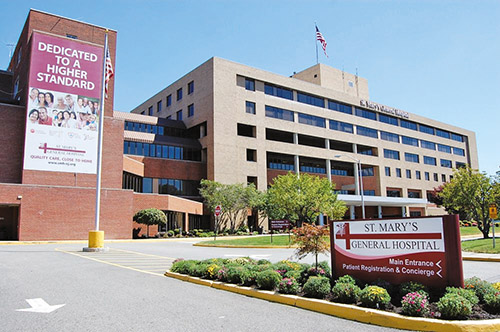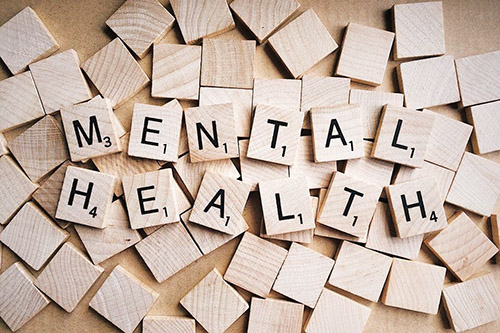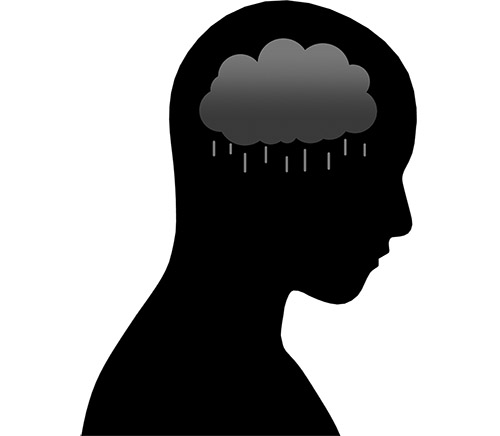
Electroconvulsive therapy. The very name likely conjures up grim images of patients twisting and writhing in pain while being held down and electrocuted by stone-faced nurses and doctors. While this sort of misconception has permeated popular culture thanks to TV and movies, most notably in the treatment suffered by Jack Nicholson’s character Randle McMurphy in the 1975 award-winning movie “One Flew Over the Cuckoo’s Nest,” it bears no resemblance to how ECT is performed in the real world.
Contrary to popular belief, ECT is one of the most effective treatments for severe depression, acute bipolar disorder and other severe psychiatric conditions that have not responded to other treatments. While no medical treatment or procedure is without risks and side effects, those associated with ECT are surprisingly manageable. Indeed, according to Cynthia Piltch, Ph.D, in Jewish Boston magazine, after two depressive episodes left her hospitalized, “the only treatment that saved my life was electroconvulsive therapy.” Considering these facts, curious readers may wonder if ECT is a potential option if they or a friend or family member is suffering from severe mental illness.

ECT is a psychiatric procedure conducted under general anesthesia with the goal of using electricity to induce a “grand mal,” or “tonic-clonic” seizure. This seizure is characterized by loss of consciousness followed by muscle contractions, and results in a relatively faster improvement in a patient’s mental health as compared to more traditional treatment options. In patients with treatment-resistant depression, for example, ECT is more effective than antidepressant medication. Research suggests that depression and other stress-related disorders are ultimately caused by a deficit in mood-enhancing signals. While antidepressant medications generally work by increasing the release of these signals in the brain, ECT does this along with enhancing brain growth, preventing brain-cell death, and ultimately resulting in quicker results.
Prior to the procedure, patients are generally given a complete medical workup, which includes a comprehensive physical, neurological, dental and pre-anesthesia examination. The patient’s existing medication regimen is reexamined, and medications that may interfere with the procedure are temporarily discontinued. Patients are instructed not to eat anything six hours
prior to the procedure and are given a block to bite on to prevent them from biting their own tongue while convulsing. The procedure is done under general anesthesia with the patient being monitored the entire time. ECT treatments are usually given two to three times per week. Most conditions being treated with ECT require multiple treatment sessions to be effective.


How does it work?
What can it be used for?
ECT is recommended when patients have not responded to medications or have experienced severe side effects. ECT has shown efficacy in treating treatment-resistant major depressive disorder, bipolar I disorder and psychotic depression, particularly when patients have severe symptoms, such as refusal to eat, serious weight loss, slowed mental or physical activity or delirium. ECT can also be effective in those who are experiencing depression and cannot take antidepressants safely such as in pregnant women, the elderly or the extremely ill. ECT may even be effective for children with suicidality and depression. Interestingly, even in cases where ECT fails to improve the patient’s symptoms, previously failed medications may become effective for the patient after ECT treatment.
What are the side effects, risks and contraindications?
While ECT has no absolute contraindications, there are certain circumstances when the risks outweigh the potential benefits. Patients with tumors and other brain lesions are at increased risk for swelling and increased pressure in the brain after ECT treatment, though this can be prevented with steroids. Blood pressure medications can decrease the risk of brain bleeds (like stroke) in patients who are at risk. Patients who have recently suffered a heart attack are also at high risk, though the risk drops depending on how many weeks or months have passed since the heart attack happened. The risks of death during the procedure are comparable to those associated with general anesthesia and childbirth.
Typical side effects associated with the procedure are headache, confusion and delirium immediately after the procedure. Though there is some risk of muscle soreness, bone fracture, nausea and vomiting, this can be minimized using muscle relaxants and anti-nausea medications prior to the procedure. The most significant possible longer-term side effect of the procedure is memory loss, though this typically subsides after six months. There is no evidence that the procedure causes any long-term brain damage.
Depression can severely impact one’s life and, if various medications fail to help, treatment can seem hopeless. ECT can be a life-saving option for those who are suffering from this complex, often overlooked condition. If you or someone you love is suffering from depression and has not had improvement with medications, talk to your doctor about trying ECT.



References:
Bolton-Fasman, J., & JewishBoston. (2018, April 30). “Synagogue Inclusion’s Next Frontier: Mental health.” JewishBoston. Retrieved February 10, 2023, from https://tinyurl.com/2tcpefw9
St. Mary’s General Hospital offers multiple behavioral health services:
Outpatient Clinic: We accept most private and public insurance. Our staff includes a psychiatrist, APN, social workers, and more.
Day hospital programs for ages 11-plus. Day hospital programs occur Monday-Friday for weeks to months, can provide transportation, run all year long, and offer individual, group and family therapy, as well as medication management and school interventions.
Mental Health Center of Passaic for patients >10 years of age.
Emergency Services: Children may be taken to the St. Mary’s emergency room for mental-health crisis evaluation
PerformCare in the state of New Jersey provides in-home resources, mobile outreach, and case management.
By Sasank Isola, MD; Fatima Khan, MS; and Sheindel (Ifrah) Goldfeiz













